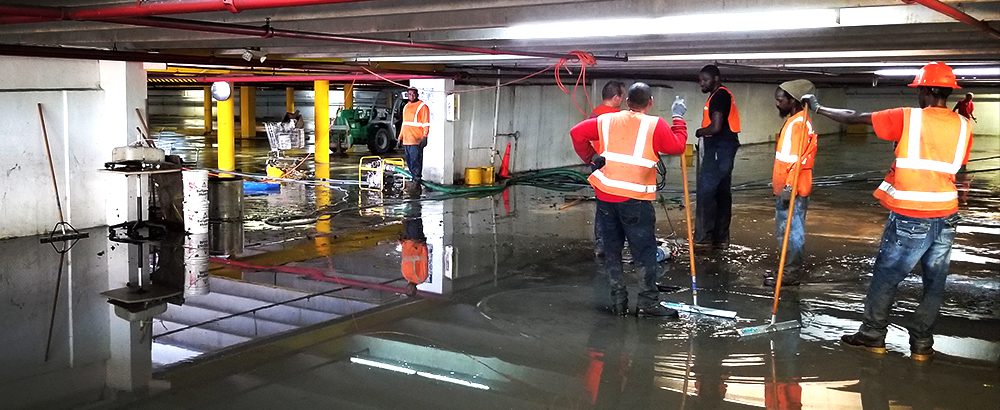As we begin to near the end of what is potentially the costliest hurricane season on record, those affected are left thinking, what now? In the construction industry, this question can be particularly troublesome. Hurricanes bring projects to a stop, causing both delays and damages that must be dealt with in a storm’s wake. The first place to address these potential issues is one’s contract, specifically within the force majeure clause.
While the standard AIA Document A201 does not use the term force majeure, section 8.3 addresses the concept as a delay in time due to “causes beyond the Contractor’s control.” And, AIA A201 defines some weather delays as one of these causes. Force majeure clauses generally contemplate the occurrence of natural disasters which are unforeseeable and beyond the control of the parties, providing some recourse in such situations. That said, there are three items to check related to any force majeure clause. Are the events defined; what are the notice requirements; and is there insurance coverage?
Force majeure events may have different definitions, and different events may qualify depending on the applicable contract. While some define events broadly to include anything beyond the reasonable control of a party, others may be more limiting and include provisions that address foreseeability and reasonableness. Some include stipulations that the date of completion be extended by the period during which the contractor is prevented from work, and if a contractor may continue to be paid even when unable to fulfill its contractual obligations, but other approaches contemplate that the contractor include an allowance for delays where the project is in a foreseeable hurricane zone and is being built during hurricane season.
Once the defined event occurs, a force majeure clause may determine what notices are required from a contractor and time limits for notification. Under AIA Document A201, a contractor has 21 days to provide written notice after recognizing the possibility of a delay of weather claim. Notice requirements may also include forms of delivery, and to whom notice should be sent. Notice letters should provide explanations for cause and effect of delay, how long the effect is expected to continue, and actions to be taken in its wake. Bear in mind that if the extent of the total impact is not ascertainable at the time of notice, a contractor must provide such information along with an assessment of overall impact as soon as is practicable.
Lastly, every contractor needs to have a good understanding of insurance coverages – builders risk, commercial general liability insurance, wind, flood – each provides a different level of coverage. However, for any of these to be effective, a contractor must ensure that the types of disasters considered by the contract are also covered within the applicable policies. Assuming they are, just because of the magnitude of the claims, would be a mistake.
In Florida, we can all appreciate the devastation a hurricane can bring. Contractors must ask if their contracts do as well.[/vc_column_text]





